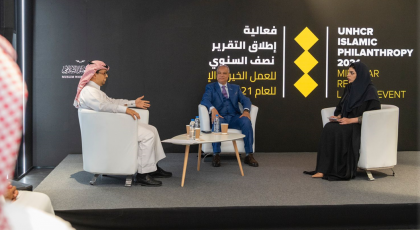
The Secretary-General of the Muslim World League, His Eminence Sheikh Dr. Muhammad bin Abdul Karim Al-Issa, wrote an article in the British newspaper “The Times” in which he said: The Taliban can move towards moderation with the help of the nation’s scholars.
He said under the title “Muslim scholars can direct the Taliban towards moderation”; American-led coalition forces waged a 20-year war in Afghanistan, but they lacked the religious authority needed to explore a moderate version of the Islamic identity the Taliban claimed to defend.
He considered that “religion binds most Afghans,” explaining that “it is the force that the Taliban used to build their movement, unite the factions, and provide an alternative to the US-backed government.”
He stressed that “religion is the most powerful force to guide the Taliban towards a moderate future, and this means that the Islamic world should take advantage of its collective religious authority when dealing with the Taliban government.”
He said that 20 years ago, when the United States demanded the extradition of Osama bin Laden, the Taliban suggested sending him to a court overseen by the Organization of Islamic Cooperation, an Islamic body comprising 57 countries. Despite the Bush administration’s refusal, the Taliban were making statements about their confidence in the organization.
He considered that this shows that the Islamic world can influence the Taliban, who link their motives to faith (as they understand it).
He said, “Many Muslim countries have learned to balance the challenges of modernity with its beliefs through Islamic scientific arguments. The Mecca Declaration, endorsed by 1,200 eminent Muslim muftis and scholars, was used to promote a tolerant Islam.”
He continued, “The Muslim World League – the largest Muslim non-governmental organization in the world – urged the Taliban to adhere to this declaration. It also organized a peace conference in which Afghan and Pakistani scholars proposed the formation of a joint committee, to promote common visions of peace rooted in authentic Islamic values.”
He stressed that “this dialogue must continue to support responsible governance in Afghanistan. Whatever the Taliban’s beliefs, they will continue to seek international recognition and funding.”
He noted at the end of the article that Afghanistan “faces hunger, potential insurgency and massive budget deficits. The Taliban will have to listen – and make concessions – or their government will fail. This means that the world’s Muslim scholars and clerics have an invaluable opportunity for Afghanistan to become a peaceful country.”







